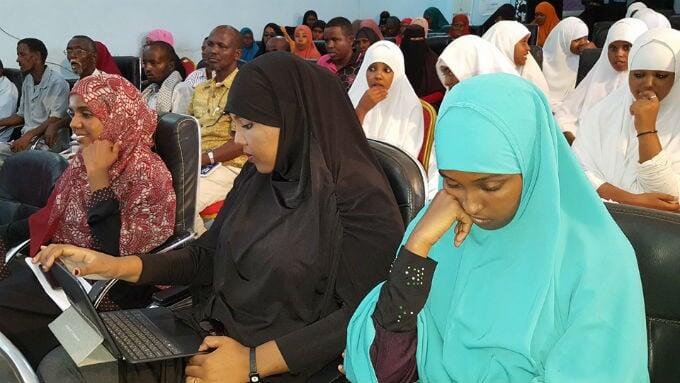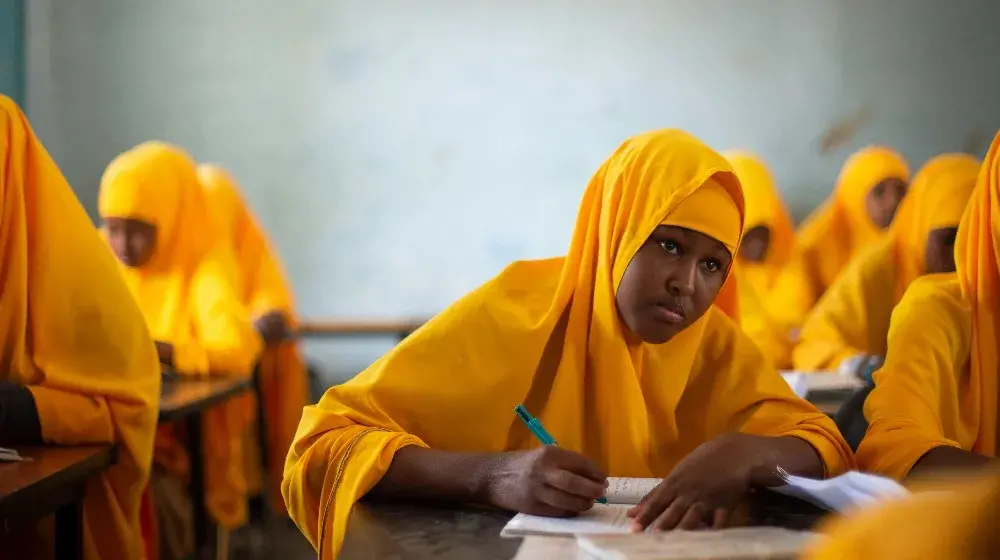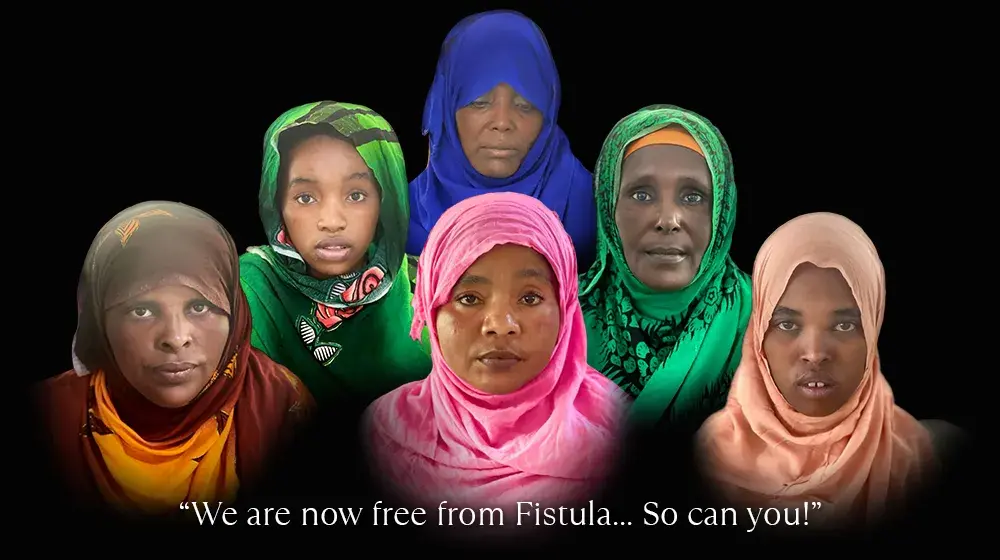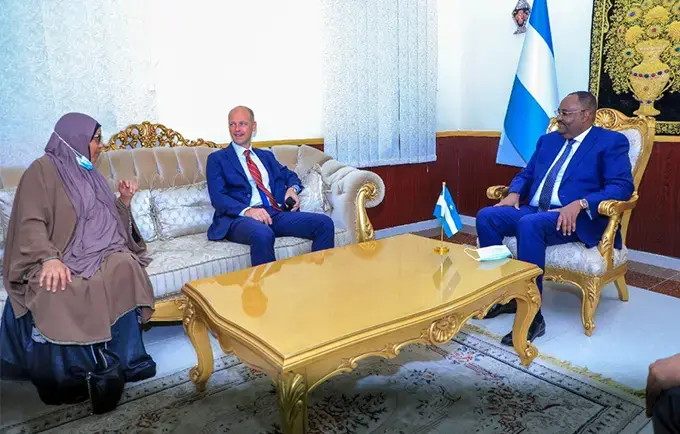Garowe, 23 May 2016 – The Ministry of Health of Puntland State of Somalia, with support from the United Nations Population Fund (UNFPA) and other stakeholders, today marked the International Day to End Obstetric under the theme “end fistula within a generation”.
The 23rd of May was designated as the International Day to End Obstetric Fistula by the United Nations General Assembly beginning in 2013, to be observed annually as a way to significantly raise awareness and intensify actions towards ending obstetric fistula. Obstetric fistula is one of the most serious and tragic injuries that can occur during childbirth. It is a hole between the birth canal and the bladder or rectum caused by prolonged, obstructed labour without treatment.
The commemorative event in Puntland was characterised by a diverse level of representation, which included government representatives, civil society constituents, professional associations, artists and students.
State Minister of Health, His Excellency Sayid Omar highlighted the importance of prevention and management of obstetric complications including fistula. H.E. Omar commended the fruitful partnership between the Ministry of Health and UNFPA in the efforts to eliminate obstetric fistula.
The State Minister of Health also made an announcement about the forthcoming Fistul Repair Campaign in Garowe, Galkaio and Bosaso and requested participants and the media to disseminate messages about the campaign to ensure that women living with obstetric fistula are registered and supported well ahead of the start of the campaign.
Director of Garowe General Hospital, Dr. Abdisamed Ahmed, who was also representing Puntland Medical Association, highlighted two main risk factors of obstetric fistula namely female genital mutilation (FGM), and prolonged/obstructed labor. He said that FGM is one of the main causes of obstructed labour, while obstructed labour in its turn is the direct cause of obstetric fistula. Dr. Ahmed urged health professionals to take up a more proactive role in educating communities about the harmful effects of FGM as well as the importance of skilled attendance at birth and emergency obstetric care.
Chairperson of Puntland Association of Midwives, Ms. Hawo Yusuf, spoke about the centrality of midwifery training in identifying, managing and referring complicated cases of pregnancy and childbirth.
A theatre performance presented at the commemorative event focused on eliminating stigma against women suffering from fistula as well as the importance of male involvement in the efforts to end obstetric fistula.
UNFPA Head of Field Office in Puntland, Dr. Bakhtior Kadirov noted in the statement he delivered during the function that eliminating obstetric fistula requires scaling up national capacities to provide access to equitable, high-quality sexual and reproductive health services, including birth spacing maternity care, especially comprehensive emergency obstetric care. Quoting a statement on the International Day to End Obstetric Fistula by Dr. Babatunde Osotimehin, United Nations Under-Secretary General and Executive Director of UNFPA, Dr. Kadirov stated that obstetric fistula is almost exclusively a condition of the poorest, most vulnerable and most marginalized women and girls and that it afflicts those who lack access to the timely, high-quality, and life-saving maternal health care that they so desperately need and deserve, and that is their basic human right.
Dr. Kadirov took note of the positive endeavours and accomplishments in the Puntland State of Somalia that more than 270 fistula repairs were performed in the region between 2013 to 2015 with the support from UNFPA and other partners and that the Puntland Taskforce on Obstetric Fistula was established in 2015, which is expected to come up with endeavours of strategic importance.
“Just in 2015, Garowe and Galkayo hospitals assisted 6,128 deliveries, managed 2,392 obstetric complications and performed 422 caesarean-sections. More than 10,000 beneficiaries received ante/postnatal care, birth counselling and services as a result of integrated community reproductive outreach campaigns supported by UNFPA,” said Dr. Kadirov. He added that in the same year, three maternity waiting homes assisted more than 1100 deliveries; 50 midwives graduated from an 18-month course and that more midwives will be graduating in 2016.
It was also noted by the UNFPA head of sub-office that in order to end fistula, Puntland and the world at large must ensure universal access to quality sexual and reproductive health services; eliminate gender-based social and economic inequities; prevent child marriage and early childbearing; promote education and broader human rights. He further noted much remains to be done to scale up the response and to put an end to obstetric fistula in Puntland. He called for a private-public sector partnership and the active involvement of men and fistula survivors as advocates. Dr. Kadirov also underlined the importance of securing a time bound and realistic national strategy on obstetric fistula with a three-pronged approach of prevention, treatment and social reintegration.





